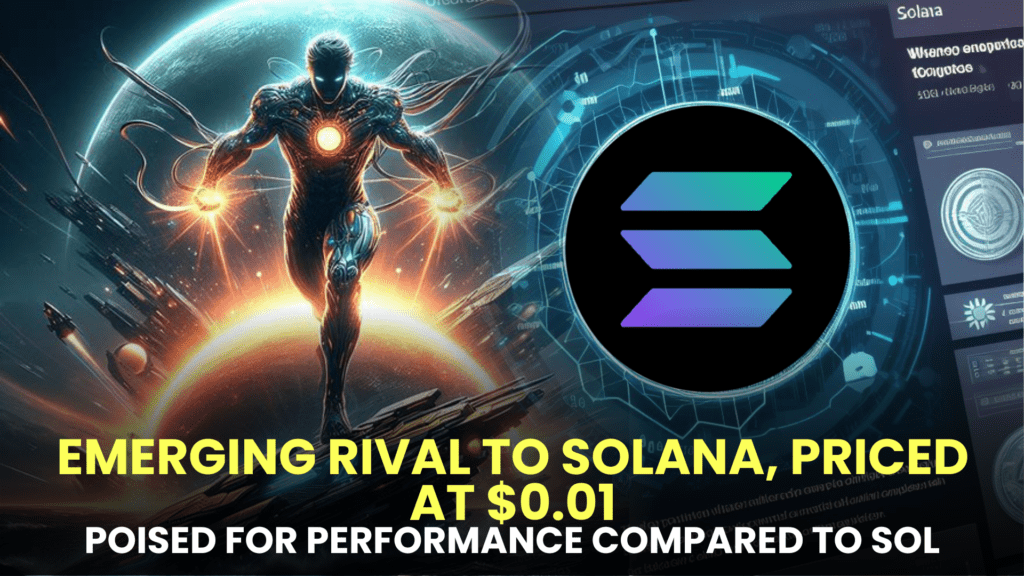Solana vs Pandoshi: A Crypto Showdown
Solana (SOL) has established itself as a leading Layer 1 blockchain solution, gaining significant adoption due to its high transaction speeds and low fees. However, a new player in the crypto space, Pandoshi (PAMBO), is gearing up to challenge Solana’s dominance. With innovative features and robust tokenomics, Pandoshi appears set to outperform Solana in the crypto market.
Pandoshi: The Underdog Set for Greatness
Pandoshi stands out with its unique blend of use cases, including decentralized finance (DeFi), non-fungible tokens (NFTs), metaverses, and more. The project revolves around its native utility token, PAMBO, which powers an entire ecosystem of products.
Pandoshi is committed to enabling true decentralization, championing privacy, and promoting monetary freedom. This commitment resonates with crypto purists who value the foundational principles underpinning blockchain technology.
Pandoshi is currently in its final presale phase before launch. With PAMBO priced at a mere $0.01 and a sold percentage of 31%, the token presents a prime accumulation opportunity before takeoff.
Superior Tokenomics Built for Sustainability
PAMBO leverages a deflationary token model with an inbuilt buy-and-burn mechanism. This feature reduces circulating supply, allowing for price appreciation in tandem with increasing demand. Unlike Solana’s inflationary design, Pandoshi opts for provable scarcity.
- Staking incentives and participation rewards paid in PAMBO further concentrate holdings.
- With burns ceasing once supply depletes by 80%, PAMBO offers boasted upside potential.
Beyond price speculation, PAMBO drives utility throughout Pandoshi’s product ecosystem, spanning DEX, layer-2 blockchain, Pandoshi Wallet, and crypto debit cards. With extensive use cases cementing continuous demand, PAMBO aims for sustainable growth rather than short-term hype.
Comprehensive Pandoshi Product Ecosystem Adds Unique Value
At Pandoshi’s core lies PandaChain, a high-performance proof-of-stake layer-2 blockchain tailored for the project’s needs. This custom infrastructure powers micro-fees, driving the adoption of Pandoshi’s DEX, PandoshiSwap.
Moreover, Pandoshi Wallet grants users self-custody and interaction with decentralized apps, while Cardoshi debit cards enable real-world crypto spending. This ecosystem of products provides a circular flow, cementing PAMBO’s utility. With continual development planned, including NFT and metaverse integrations, Pandoshi is gearing up for exponential expansion post-launch.
Solana (SOL) vs Pandoshi (PAMBO)
Solana deserves credit for its blockchain innovations, enabling fast transaction speeds and vast scalability. With high-profile partnerships and over 400 projects in its ecosystem, Solana maintains pole position currently.
However, Pandoshi brings fresh ideas to the table with its array of decentralized products, deflationary tokenomics, and focus on monetary sovereignty. This positions PAMBO to capture greater investor interest relative to SOL in the long run.
While Solana strives for faster payments, Pandoshi wants to enable private, decentralized, and permissionless transactions with minimal intermediation. And with accessible pricing, Pandoshi presents a lower barrier to gaining exposure to this crypto vision.
Pandoshi’s Prospects Outshine Competitors
As the crypto industry matures, projects emphasizing foundational principles seem likely to prosper. Pandoshi stays true to blockchain’s roots with its choice of decentralization over pure profit incentives and centralized governance.
With impressive product development matching lofty ambitions, Pandoshi seems ready to deliver investors substantial returns in its ascent towards definitive success. Consequently, the overlooked PAMBO presents lucrative yet low-risk exposure for those seeking undervalued alts.


